Innovation And Impact: Highlights From AfroTech 2024
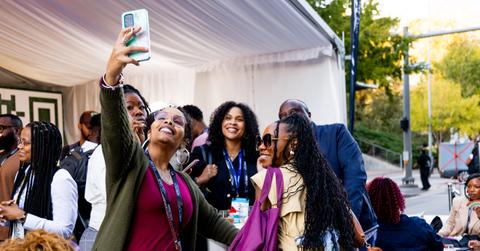
Afrotech 2024 in Houston, TX
Conversations change the world, and AfroTech 2024 proved to be the ultimate platform for sparking them. Held in the heart of downtown Houston, this year’s conference brought together a vibrant community of innovators, leaders, and creatives dedicated to reshaping narratives, overcoming challenges, and championing stories of resilience and triumph. From exploring the rise of AI to celebrating Black entrepreneurship and advancements in data engineering, AfroTech showcased the brilliance of Black excellence while inspiring attendees to imagine a more inclusive, equitable future.
Known for its immersive career expo and eye-opening panels, AfroTech delivered another unforgettable year. Highlights included the “Women’s Summit: Ambitions Into Achievements: How Women Are Shaping Their Own Success Stories,” featuring wealth-builder Rachel Rodgers and AfroTech founder Morgan DeBaun. Together, they shared impactful strategies for breaking barriers and designing careers that reflect their values and aspirations.
AI was another key theme, with discussions like “AI: Playing Offense and Defense,” led by Ryan and Bryan Swann, offering insights into leveraging generative AI and machine learning tools to maximize business results while prioritizing ethical data practices.
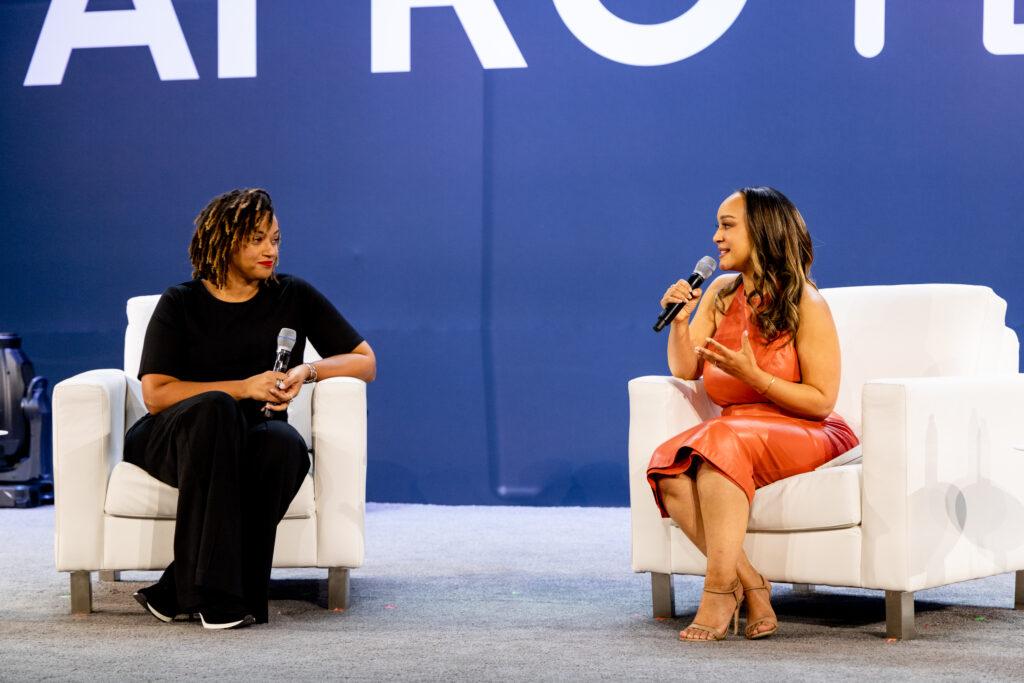
Rachel Rodgers and AfroTech founder Morgan DeBaun at Afrotech 2024 in Houston, TX. Photo Credit: Victoria Engblom
A standout moment of the conference was the “Founder’s Summit: Knowing When to Seize the Moment for Company Growth,” featuring Beatrice Dixon, founder of Honey Pot. Dixon offered an honest and inspiring look at her entrepreneurial journey—from grassroots beginnings to getting scammed by faux manufacturers to scaling a mid-sized business that is reshaping the consumer goods space.
Reflecting on Honey Pot’s origins, Dixon shared, “We launched with no money.” Her early days involved juggling full-time jobs, attending events like the Bronner Brothers Hair Show, and doing whatever it took to keep the business alive.
“You just need bodies—people who believe in what you’re doing,” she said, emphasizing how early-stage passion often outweighs professional expertise.
As Honey Pot grew, the focus shifted to building a skilled team equipped to meet the demands of a scaling business. “Now, it’s about skillsets, relationships, and knowing how to do the work,” Dixon explained.
Her journey wasn’t without sacrifice. From cleaning houses to decorating Christmas trees, Dixon balanced multiple jobs to fund her dream, going unpaid for years.
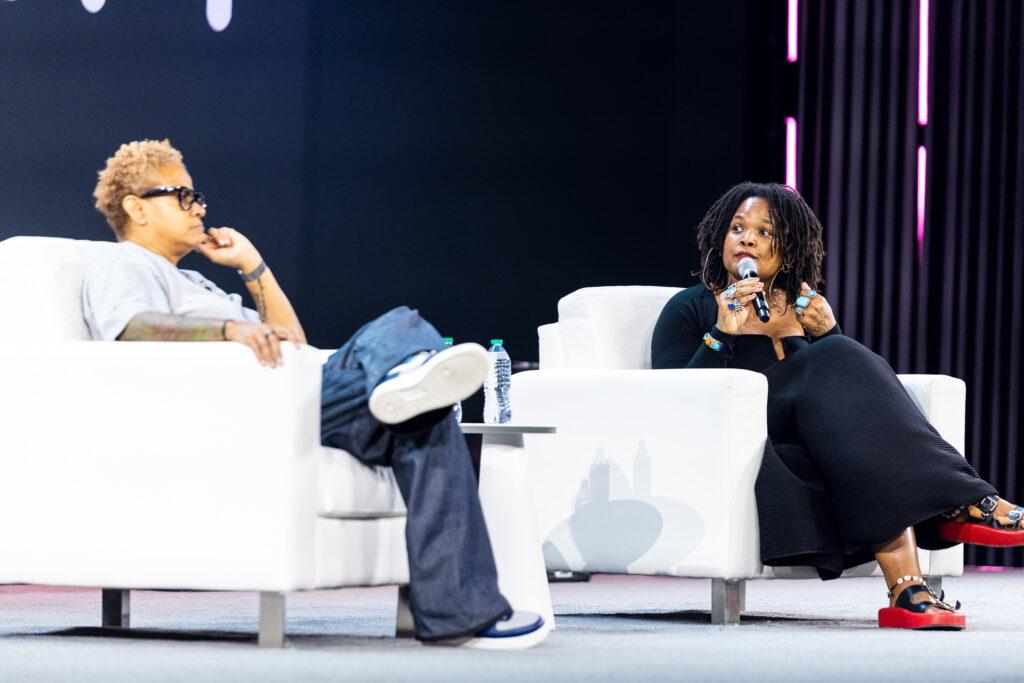
Melissa Bradley and Beatrice Dixon at Afrotech 2024 in Houston, TX. Photo Credit: Levi Thompson
“I didn’t start getting paid until 2017,” she revealed. The pressure intensified when Honey Pot secured a retail deal with Target, requiring her to juggle product supply and the financial complexities of delayed retailer payments.
A pivotal milestone came earlier this year when Honey Pot completed a majority acquisition by Compass Diversified. This deal allowed Dixon to buy out early investors while maintaining a stake in the company, enabling her to scale the business further.
“People think you need to be the majority owner to win, but it’s about growing the pie,” she explained. “Even 20% of hundreds of millions is significant.”
Dixon’s story is one of resilience, resourcefulness, and vision.
“I like to work,” she said. “I like creating things that make human lives better.”
Her advice to aspiring founders is straightforward: “Start where you are, embrace the grind, and understand that success takes time. You don’t get rich being a founder unless you have an event. It’s about the journey, the impact, and the legacy you leave behind.”
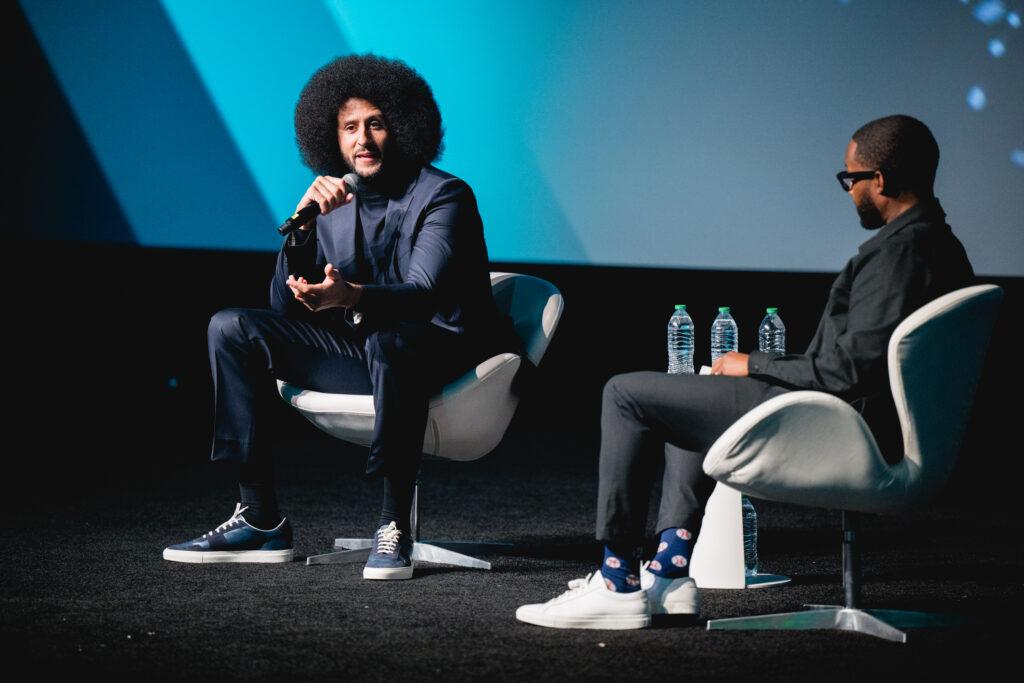
Afrotech 2024 in Houston, TX. Photo Credit: Benjamin Esakof
Other notable AfroTech 2024 speakers, including Bun B, Tobe Nwigwe, Governor Wes Moore, Angelica Ross, will.i.am, Colin Kaepernick, and Tip “T.I.” Harris, shared transformative insights on topics spanning venture capital, ownership, entertainment and social impact.
As AfroTech 2024 wrapped up, one message resonated: the future of tech and innovation is brighter, bolder, and more inclusive, thanks to the visionary leaders and changemakers within this vibrant community. Whether you’re an entrepreneur, investor, or tech enthusiast, AfroTech underscores a vital truth: innovation starts here—with the Black diaspora.
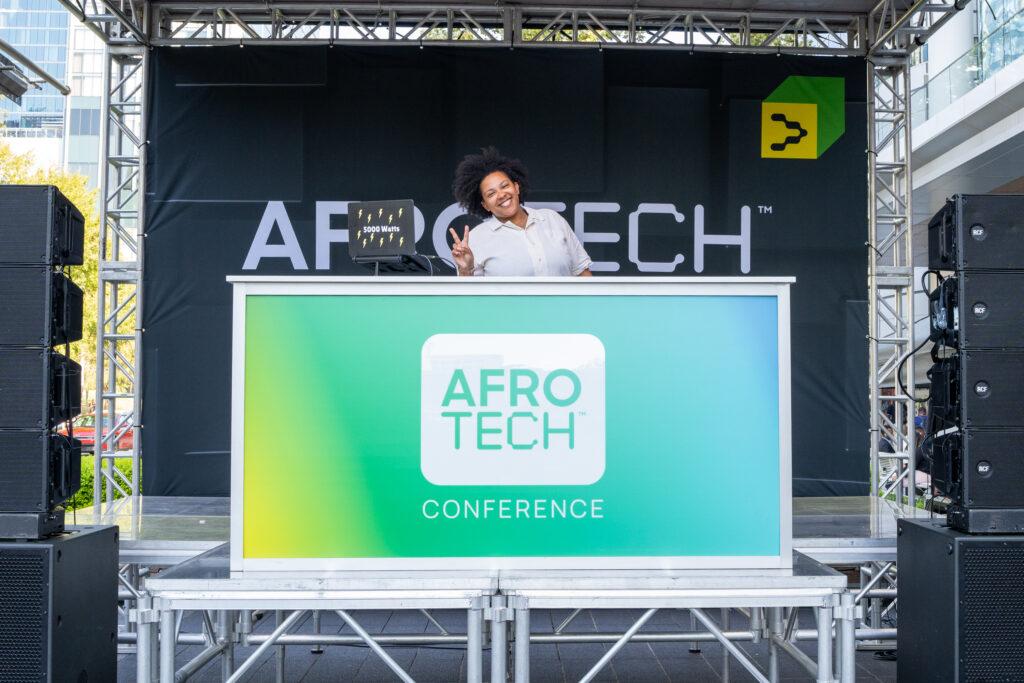
Culture Park at AfroTech Houston, TX 2024. Photo Credit: Christopher Nechodom






